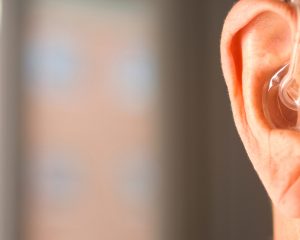Signs of Hearing Loss
If you’re finding that people are having to repeat themselves frequently, you notice the volume of the TV creeping up — especially if others want it lower — you find social settings difficult, particularly in a large group or noisy environment, then it might be time to consider hearing aids.
If your hearing has deteriorated due to age-related hearing loss or noise exposure, or you suffer from debilitating tinnitus that makes it difficult for you to sleep or engage in everyday conversation, a hearing aid solution could make the world of difference. We rely on our hearing for more than we realise, and we don’t often understand this until we start missing the things we can no longer hear, whether that’s the sound of birdsong, a favourite piece of music or the reassuring voice of a loved one.
Auditory Deprivation
Recent studies show how hearing aids programmed correctly to a patient’s prescription actually slow deterioration due to stimulating hair cells in the inner ear. Otherwise the ears receive less sound than they used to, leading to auditory deprivation.
Furthermore, the auditory centres in the brain become lazy and you lose crucial listening skills. The longer people leave things before treating the problem with hearing aids and “waking up” these hair cells, the harder it is to rehabilitate to clear sound and the harder it is to redevelop those vital listening skills that help us ignore sounds we would deem as non-important or not required. It is indeed possible to “forget” how to hear, or process sounds, which makes relearning them a real challenge.
Therefore, wearing hearing aids can seem a daunting task and result in a patient giving up too early. So the correct support is required to guide people through the initial stages.

